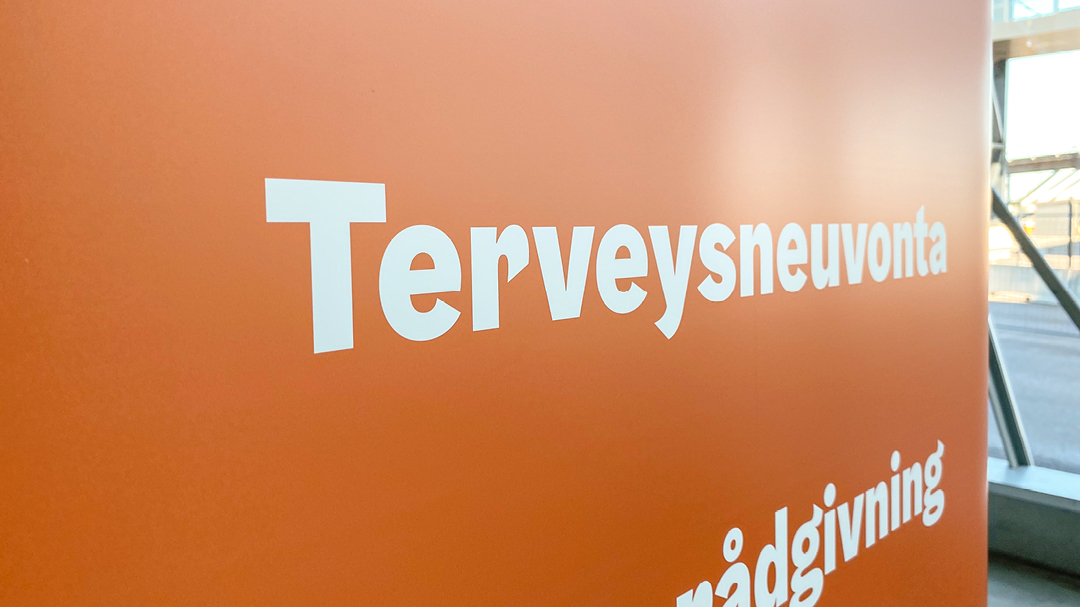Press release by the Ministry of Social Affairs and Health and the Finnish Institute for Health and Welfare
COVID-19 cases on the rise again in Finland — infections reported particularly among Euro 2020 football fans returning from Russia

A total of 947 new COVID-19 cases were reported in Finland between 21 and 27 June, which is much more than in the preceding weeks. In fact, this is over 400 cases more than the week before. The recent spike in Covid-19 cases is largely due to football fans returning from Russia after attending UEFA European Championship matches.
At least 4,500 Finnish fans travelled to St Petersburg, Russia, to watch Euro 2020 matches. By 30 June, a total of 386 football fans returning from Russia had tested positive for COVID-19, causing 50 further infections. Most of the cases were reported in the Cities of Helsinki, Espoo and Vantaa (a total of 264 cases and 17 further infections) and in the Hospital Districts of Pirkanmaa (38 cases and 8 further infections) and Southwest Finland (31 cases and 5 further infections).
The percentage of cases where the virus was contracted abroad has therefore grown. Between 21 and 27 June, half (50 per cent) of all new cases were of foreign origin, while in the previous week the cases of foreign origin accounted for 33 per cent of all cases. Over 40 per cent of the cases recorded between 21 and 27 June are directly linked to the Euro 2020 matches in Russia.
The spike in the number of COVID-19 cases between 21 and 27 June is reflected as an increase in the estimated effective basic reproduction number. Currently, the number is 0.70–0.90, with a 90 per cent probability.
Over one third of cases reported among people aged 20–29
The incidence of new cases over the last two weeks (14–27 June) was 27 per 100,000 inhabitants, compared to 23 in the preceding two-week period (31 May–13 June).
The incidence of cases has increased particularly among people aged 20–29. Over one third (35 per cent) of the cases reported between 21 and 27 June were detected among 20–29-year-olds.
COVID-19 situation remains stable in many areas and hospitals
The COVID-19 situation remains stable in many areas. Some areas have, however, reported local COVID-19 clusters. In some of the areas, particularly in the Hospital District of Helsinki and Uusimaa, the number of cases has grown considerably as a result of infections detected among Euro 2020 football fans.
Based on the information provided by the hospital districts, a total of 38 people were receiving hospital care due to the COVID-19 disease on 30 June 2021. Of them, 3 were inpatients in primary healthcare, 28 inpatients in specialised healthcare and 7 inpatients in intensive care. So far, the need for hospital care has not changed essentially.
On 30 June 2021, the total number of COVID-19-related deaths reported to the communicable diseases register was 973.
Lower test rates than in preceding weeks — 72 per cent of people aged over 18 have received COVID-19 vaccine
The number of conducted COVID-19 tests has been decreasing since the beginning of June. Between 21 and 27 June, about 68,000 tests were taken, which is around 24,000 tests fewer than the week before.
The percentage of positive COVID-19 cases of all samples taken has clearly grown. Between 21 and 27 June, the figure was 1.4 per cent.
In Finland, about 58 per cent of the population have received at least their first vaccine dose and 18 per cent their second dose. Approximately 72 per cent of people over 18 years of age have received their first dose of the COVID-19 vaccine.
Development of epidemic also monitored in summertime
The development of the epidemic will be monitored throughout the summer. A report on the epidemic is published on Thursdays at 10.00.
The monitoring report on the epidemic published today and the previous reports are available on the website of the Finnish Institute for Health and Welfare.
- Monitoring coronavirus (Finnish Institute for Health and Welfare), in Finnish and Swedish
- The COVID-19 epidemic: regional situation, recommendations and restrictions (Finnish Institute for Health and Welfare)
- Coronavirus in numbers (Hospital District of Helsinki and Uusimaa)
- Action plan for implementing the hybrid strategy to control the COVID-19 epidemic (Publications of the Ministry of Social Affairs and Health 2021:26)
- Effects of the COVID-19 epidemic on wellbeing, services and the economy (Finnish Institute for Health and Welfare), in Finnish
- Progress with the rollout of COVID-19 vaccinations (Finnish Institute for Health and Welfare), in Finnish and Swedish
- Guidelines for the controlled dismantling of restrictions and recommendations put in place due to the COVID-19 epidemic: Government memorandum 20 April 2021 (Prime Minister's Office), in Finnish
Inquiries:
Otto Helve, Chief Physician, Finnish Institute for Health and Welfare, [email protected] (development of the epidemic)
Simopekka Vänskä, Senior Researcher, Finnish Institute for Health and Welfare, [email protected] (projection models)
Pasi Pohjola, Director, Ministry of Social Affairs and Health, [email protected] (situational picture and modelling group)